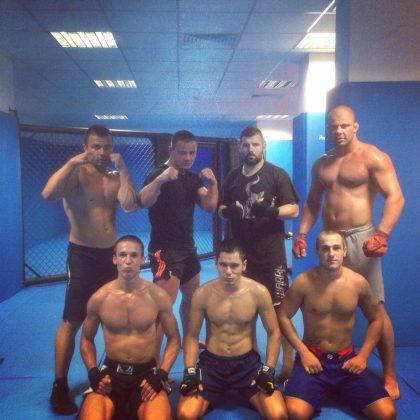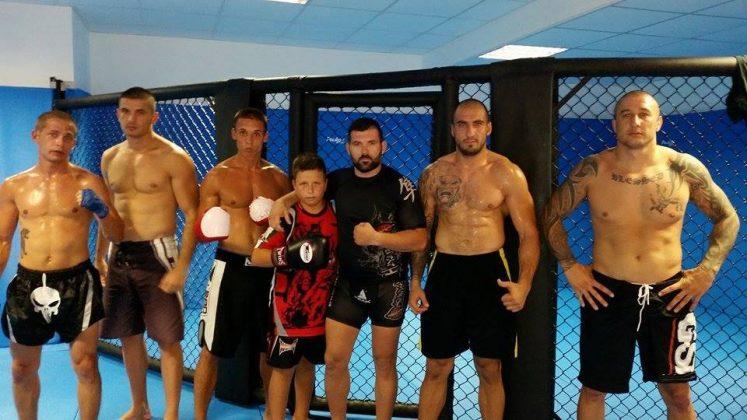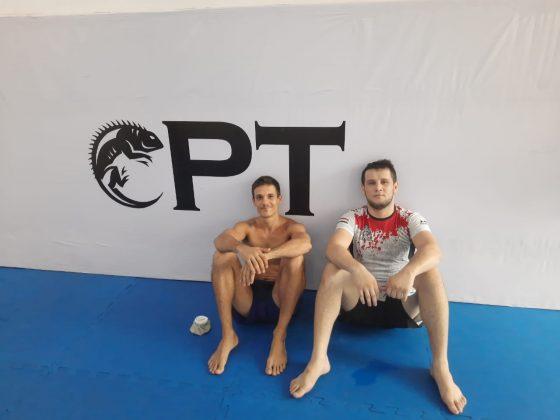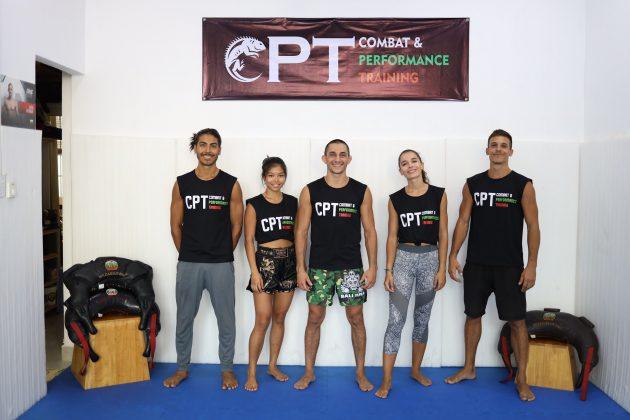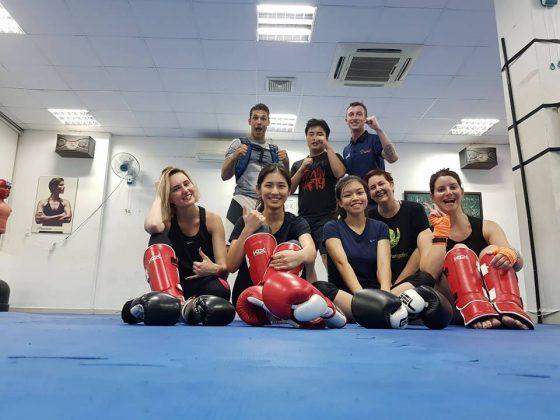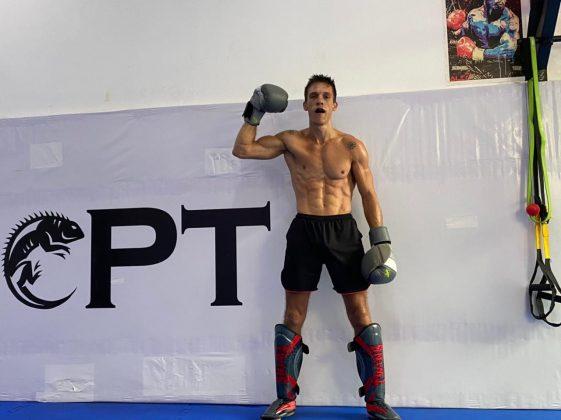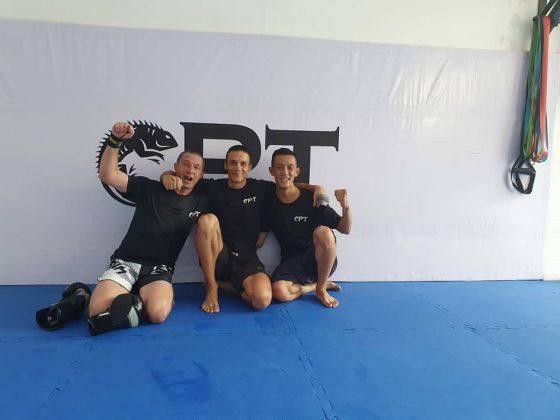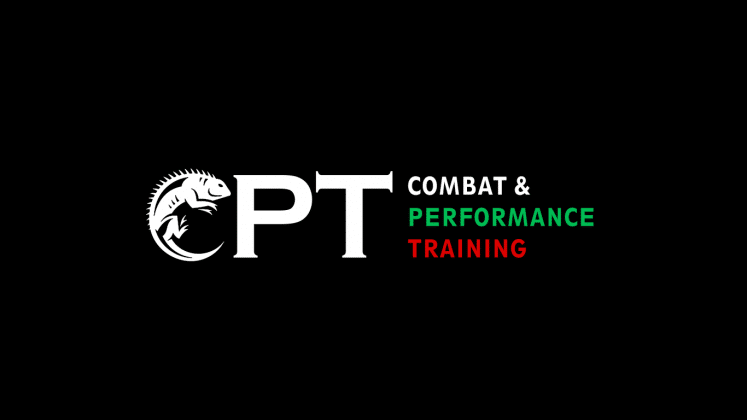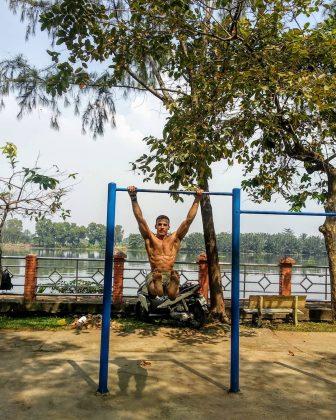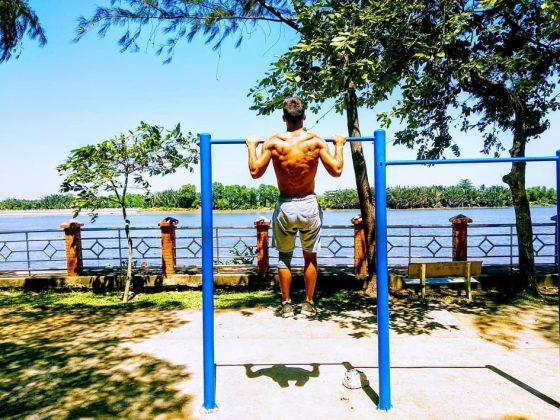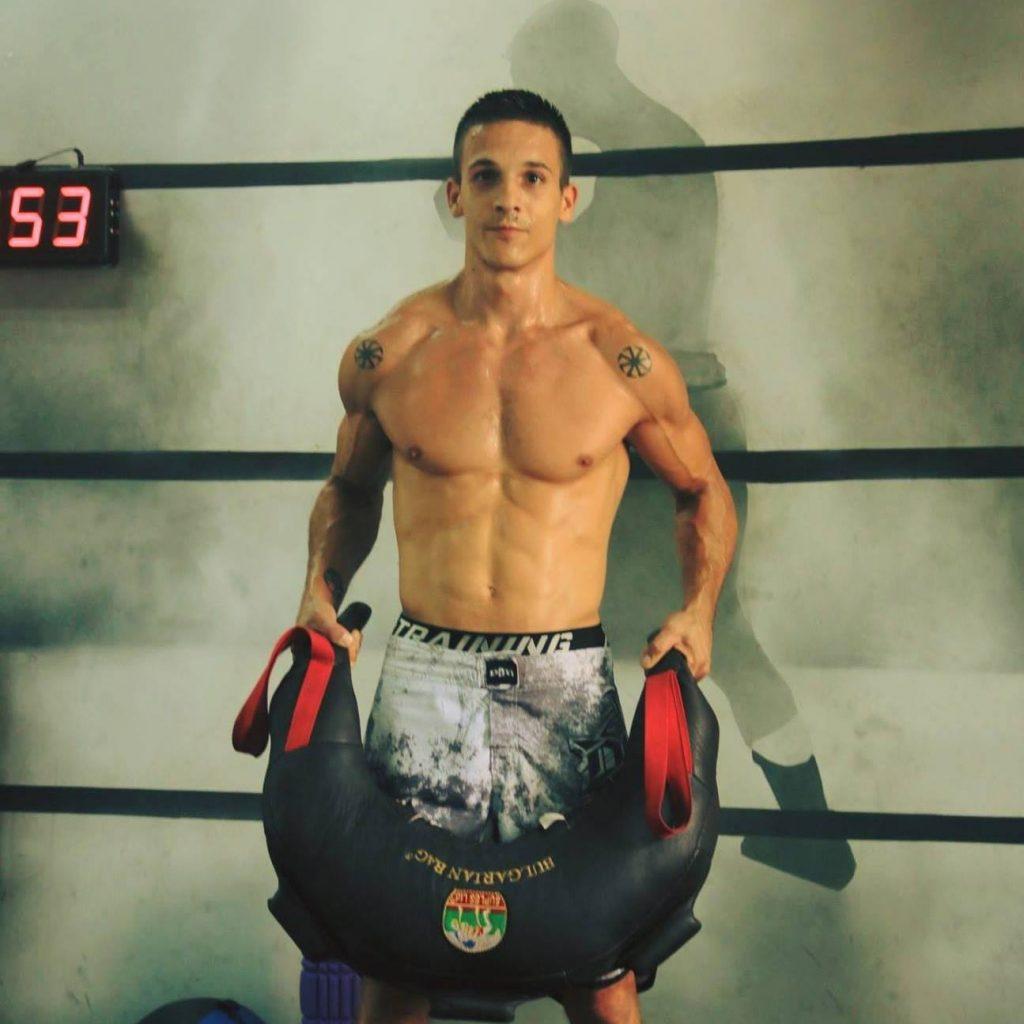
Veselin Petrov is the only certified “Bulgarian Bag” instructor in Vietnam, and one of the few in Southeast Asia as a whole. Apart from conditioning, strength, and functional training, he also teaches boxing, kickboxing, and MMA in the Bulgarian fitness center „CTP Combat & Performance Training“ in Ho Chi Minh. Additionally, he conducts prehab and rehab activities for athletes at different levels.
Veselin was born and raised in Sofia, but in 2016 he moved to Staliyska Mahala, a village in Northwestern Bulgaria, where he trained boys and men between the ages of 7 and 45. He stayed there until 2018 when he „randomly“ received an invitation to go to Asia, which is „one of my greatest loves“. It was there that he was fortunate enough to dedicate himself entirely to martial arts. Although he didn’t go to the city of 12 million „to become wealthy“, he realized how much easier things are when „there are a lot of investors and a well-equipped gym“.
Do you choose your path, or does the path choose you? What is the depth of the fulfillment that being a trainer brings? How alike is the Bulgarian temperament to the loud, cheerful and hospitable Vietnamese? Veselin Petrov discusses these topics and more with Iskra.bg.
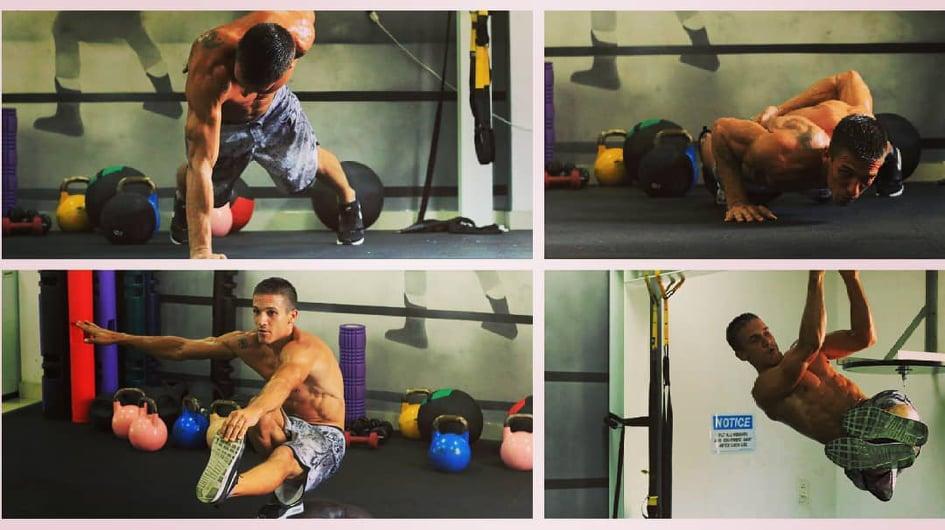
- How did you decide that you want to go into sports? Was there a turning point, something that tipped the scales?
I grew up surrounded by military personnel and athletes. My father was a professional goalkeeper, my grandfather was a boxer, and my grandmother was a soldier. You can say it runs in my genes. I was quite a hyper and difficult child, I had too much energy. That’s why from an early age my father pushed me to participate in various sports. I remember that in kindergarten I organized fights. It is, how should I say it, my soul’s calling. There have been no decisive incidents, for example, someone bullying me. In fact, I have always been strong, and I tried to protect the weaker children at school, I have never been able to tolerate injustice.
And slowly fate found a way to manifest itself. Initially, „I started with karate, but since it led to more fights, I was enrolled in soccer, then I went through track and field, basketball. I’ve tried a lot of sports, almost everything available. Unfortunately, my family did not allow me to participate in martial arts until I was much older, because they were afraid that it would create a lot of behavioral issues.“
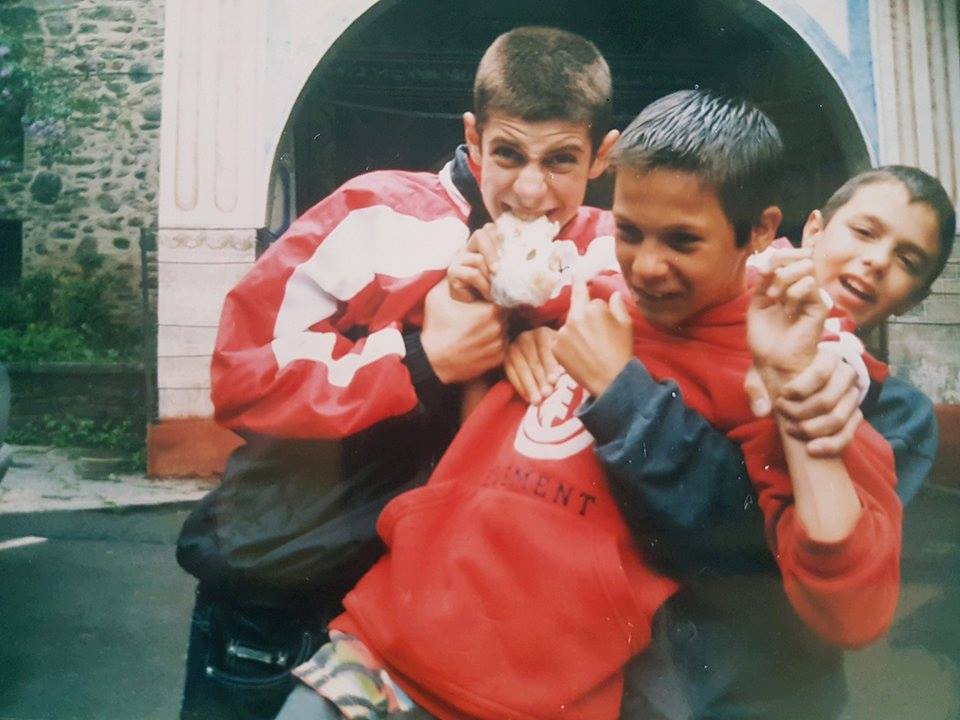
He took the first step by „enrolling in Taekwondo, Karate, Wing Chun,“ Veselin recalls. Although he claims that there were no specific decisive events, he still remembers two outstanding moments. One: “I was 9 years old, I took 5 leva from my father and I went to watch the first Star Wars movie. They almost didn’t let me in, I had to sneak in with an older guy. That movie affected me in such a way that I became obsessed with looking for ways to move more, to become stronger and faster every day.“
The next realization came from the film „The Last Samurai“ with Tom Cruise, which the 16-year-old Veselin had watched many times, but „the strange thing is that on an ordinary Saturday morning I experienced the story very vividly. It opened a door for me to Eastern philosophies, in particular Japan and Bushido’s ideology. That’s when I realized I wanted to do martial arts.“
- Why Vietnam? What was the reason for you to leave Bulgaria and go looking for success abroad?
Vietnam happened in a very lighthearted way. One day, quite randomly, I saw a Facebook post by Sotir Kyuchukov, who I’ve known since 2014 from Teodor Karastoyanov’s gym. Sotir was looking for someone to help him with Photoshop. I responded immediately, and we talked about who was doing what. I knew he was living abroad, and he told me that he had been living in Ho Chi Minh City for the last 4-5 years and needs determined people to work with. He invited me, I hesitated at first, but then I thought about it and came to the conclusion that maybe now is the time to take risks, to see other worlds, to grow. I love my homeland very much, but in Bulgaria, it is difficult to devote yourself only to training, in most cases you need another job to support yourself. It is not easy to work 8-hour shifts somewhere and train hard several times a day.
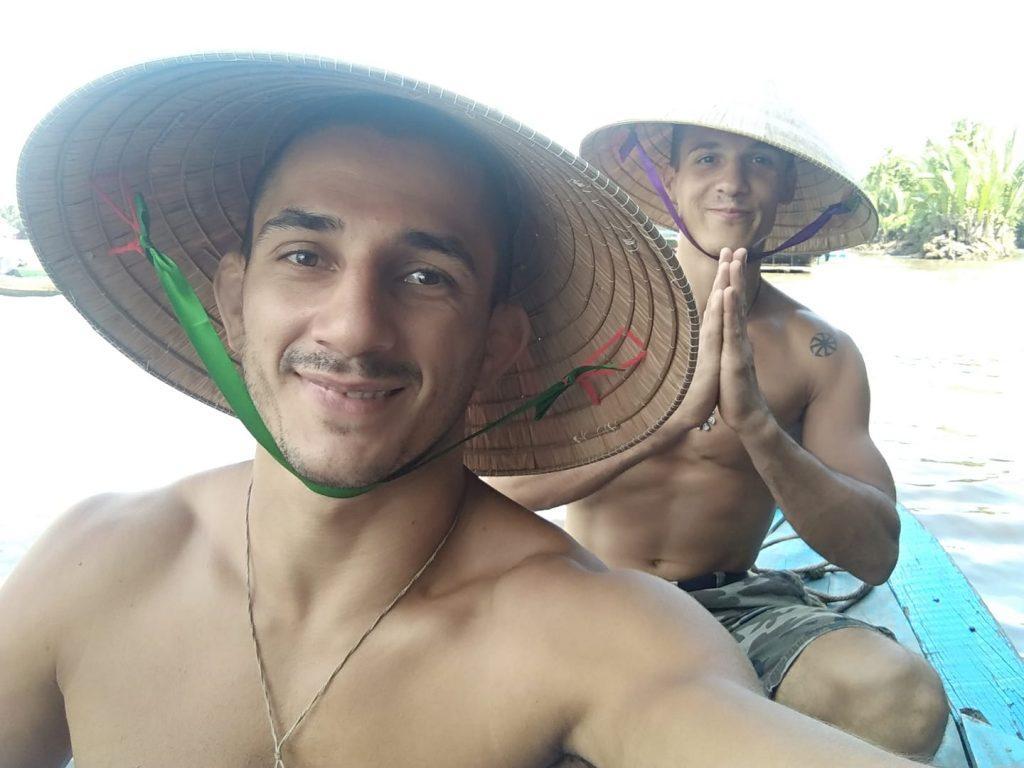
- Was it easy to get used to the new place and way of life?
I arrived in Vietnam sleep-deprived and extremely excited. I was like a child who had finally received his toy. I only brought 1 bag of clothes, 2 „Bulgarian bags“ and 100 leva in my pocket. Sotir was leaving in about a week and had to introduce me to all his clients and the specifics of each of their training regimes in no time. Apart from the jet lag and getting used to traffic on the streets, which is heavy and nobody obeys traffic laws, I did not need any other acclimating. There was no social adaptation, as Vietnamese culture is very similar to ours, and I fit into the whole atmosphere from day one. The Vietnamese are loud, cheerful, and extremely hospitable. They sing, drink and smoke a lot. Others are outraged, but I feel at home.
Petrov started working in a huge, perfectly-equipped gym with a team of dedicated professionals who „saw what I was capable of and accepted me automatically“. Thus, he had the opportunity to learn „first hand“ all the intricacies of coaching. At one point, Veselin and Sotir decided to open their own gym, „to work for ourselves“. They called it „CTP Combat & Performance Training“, and when making the logo they used the colors of the Bulgarian flag. Thus, with nostalgia and love for the homeland, they formed a „great little team“ and began to apply everything they had learned. In addition to the methods known to most athletes, they included practices that are atypical for conventional gyms – breath work, ice baths, and meditation.
- How do you eat and train? Do you follow a certain meal and exercise plan or are you more flexible?
I do not follow a diet, I try to eat at the same time every day and have at least 3 main meals. Additionally, I include 2 or more intermediate meals – fruit, ice cream, smoothies. On Sundays, I probably drink 7 of them. I only limit my intake of soft drinks, packaged foods, and I do not drink alcohol. I try to prime my body before training by increasing my intake of fluids and vitamins. Sometimes I do happen to eat burgers and pizza, but I largely avoid products that everyone knows are more poison than food.
- Do you manage to get enough sleep with so many commitments?
I go to bed early and wake up early every day, 6 hours of sleep is enough for me. My views on this topic may seem strange to most people, but I have a keen interest in the way the human body functions. Losing and gaining weight or working out in order to look a certain way is extremely basic for me, somehow secondary. I experiment with the limits of my own abilities, even in terms of recovery. During the day I meditate for 20-40 minutes and this gives me extra energy. We also show it to clients – with less sleep and more physical activity, the body can recover perfectly. Excessive rest is overrated. Instead of sleep, the body can also recharge by swimming, walking in nature, or going for a light jog.
Veselin trains every day, alternating martial arts with stretching and recovery methods, as well as mobility practices. He experiments with various techniques for physical activity and relaxation – both of the muscles and of the mind and consciousness. Petrov believes that everything in the human body is connected, so „let’s not forget what the great thinkers and inventors knew thousands of years ago. Namely – you can not focus on just one part of the body, leaving others to wither away. Working out can benefit even those that work in the sphere of exact sciences by sharpening their minds.“
- You help a variety of people. When did you realize that being a coach or trainer is your calling?
I am most fulfilled when I help others and see their progress, not just physically. I feel happy every day doing it. Plus, there are different aspects of help. Whether you contribute to someone’s self-confidence, their sense of freedom, or whether we work on healing an injury – it doesn’t matter. The results fill me with joy. We’ve helped people who were ready to surrender and with joint efforts managed to emerge victorious – in those cases the feeling is indescribable.
- When do you feel successful?
It is hard to feel happy with myself because I am too self-critical. Even if I achieve some success, purely objective, for example in martial arts, it is just a door to the next step. There is a constant need to upgrade. No endpoint is satisfactory. There is no ultimate goal in fitness, the goal is to always be faster, be more focused, be more of everything really.
- What is the biggest challenge you have faced as an athlete?
I set a goal to sleep 3 hours a day for 30 days while training twice a day (once early in the morning, the second at the hottest time of day, sometimes reaching 38-40 degrees), meanwhile I was also teaching classes. I succeeded, I proved to myself that it is completely possible with the power of will and the power of the mind. We can push our limits as long as we are prepared enough. However, I hope that people will understand that this is a serious undertaking and requires years of work. Even then, things may not go according to plan. After that month, I needed serious stabilization and even medical help for my body to recover – it is of utmost importance to be rational.
- Who are the people that inspire you?
The athletes that inspire me are Bruce Lee and Mohamed Ali, no doubt. Everyone knows what great fighters they are and what great character they possess. However, I have been more influenced by historical figures such as Achilles, Alexander the Great, Genghis Khan, Nikola Tesla, Miyamoto Musashi. They are such morally advanced innovators, and so energetically charged. There is no way to get acquainted with their lives and not feel motivated by their teachings. It was Musashi who inspired me to conduct the experiment I mentioned earlier.
- What advice would you give to those who are just entering the world of martial arts?
I would advise everyone who has set out on this path to give themselves over to it completely. That way it becomes easier, despite the difficulties. There are times when you are fed up, everything hurts, and you can’t get out of bed. There are definitely moments like that. But even then, you have to show consistency and perseverance. Creating habits takes months, maybe years. If a person is convinced that he has found the thing he was born for, he should not sacrifice it in the name of going to a club, drinking, and having fun. These are not even sacrifices, it is an investment in yourself.
- Do you think that martial arts has changed you over the years? What has it taught you?
It has changed me a lot, definitely. I don’t know what I would have done without it, and I’m more than serious when I say that. In my life I went through difficult moments, losses, separations, metamorphoses, I became wiser, and growth comes with a price. Training has gotten me out of all sorts of situations. I owe all my discipline to martial arts. I learned that work pays off. Injuries happen to psychologically show you that there is only one way out. You stand up and move on. A cliché, but clichés didn’t become clichés by accident.
The goals that Veselin Petrov sets for himself in the future are simple: To gain knowledge and experience – both he and the people that share his path. It is no coincidence that he says „teamwork is an important element“. As he grows, Veselin strives to „expand our space and step by step improve the gym“.
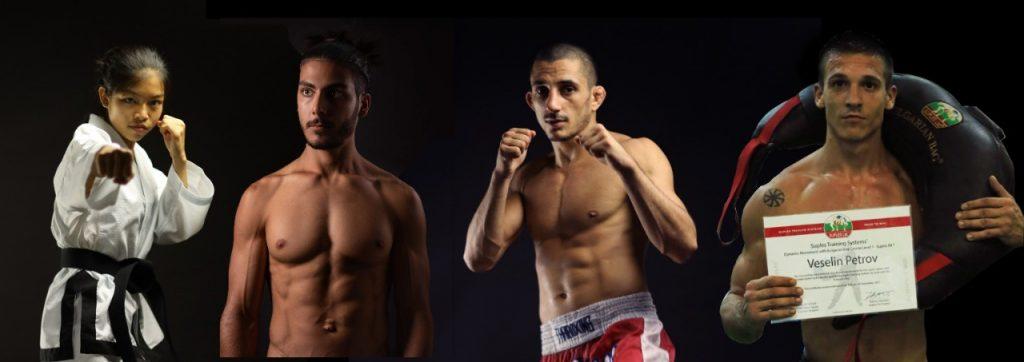
His aspirations for the future return him to the countryside, where he spent most of his summers as a child. There, in the middle of nature and everything native, Veselin wants to open his own club to help children in whom he sees a huge potential in need of a base for development. The construction of a sports center is a worthy goal, born of the motive „to one day be able to bring everything we have learned back to Bulgaria and pass on the knowledge. Wherever we go, whatever we do, people are always hearing about Bulgaria“.
Translation by: Galiana Petrova

